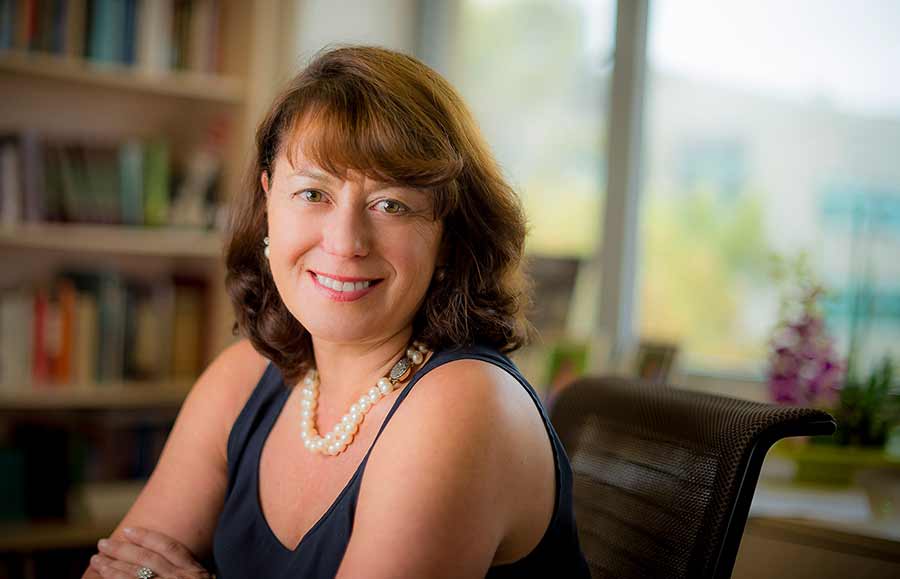
By:
- Anthony King
Published Date
By:
- Anthony King
Share This:
UC San Diego Strength in Humanities Leads to Inclusion in Prestigious Research Consortium
American Council of Learned Societies welcomes university to leadership group
The University of California San Diego has joined the American Council of Learned Societies (ACLS) Research University Consortium, a prestigious academic leadership group in the humanities. There are currently 35 additional top universities in the consortium.
The consortium’s mission is to increase financial support for and overall number of academic researchers in the humanities and related social sciences. Individual fellowships are awarded through rigorous, peer-reviewed competitions.
ACLS invited UC San Diego to the consortium based on its innovative approach to humanities research and engagement, shown through multiple years of successful fellowship competitions, recent academic growth and future trajectory.
“The strength in humanities research and education at UC San Diego is remarkable, and inclusion by the American Council of Learned Societies is a welcome reflection of the hard work, dedication and ground-breaking research being done by our outstanding faculty and students,” said Cristina Della Coletta, Dean of the Division of Arts and Humanities. “We are honored by the invitation to be a part of this prestigious consortium, and look forward to participating fully.”

Cristina Della Coletta. Photo by Erik Jepsen/UC San Diego Publications
Founded in 2001, the leadership group has a “substantial impact” on supporting scholars, ACLS President Pauline Yu said in the invitation letter. One of the nation’s main funders of humanities research, ACLS is a private nonprofit founded in 1919 to advance humanistic studies in all fields of learning. Awards from their central fellowship program have increased 315 percent to the current annual level of $4.1 million. Eight percent of awardees received their advanced degrees at consortium universities.
Reflecting the university’s commitment to supporting students and faculty in the humanities and related social sciences, UC San Diego will open the North Torrey Pines Living and Learning Neighborhood as part of its campus-wide Strategic Plan. An innovative mixed-use community incorporating residential, academic and administrative space, the divisions of Arts and Humanities and Social Sciences will each play central roles in the new, interdisciplinary neighborhood.
“Research and education in the humanities at UC San Diego is a vital part of our institution, and it is important to both recognize and support this innovative work because the humanities provide incredible value to a first-class, comprehensive university,” said UC San Diego Chancellor Pradeep K. Khosla. “Continuing our tradition of pushing boundaries in academic research, the Living and Learning Neighborhood helps support this, creating an active academic environment for both our faculty and students.”
Since 1957, more than $1.5 million has been awarded to individual scholars at UC San Diego through ACLS fellowships and grants. The funds are used to support research in history, literature, philosophy, language and cultural studies, the classics, linguistics, and sociology, among others.
Most recently, Jann Pasler received a $70,000 fellowship for her research in the Department of Music, and Matthew Wills, a Ph.D. student in the Department of History, received a pre-dissertation grant of $5,000. Advised by professor Karl Gerth, the Hwei-Chih and Julia Hsiu Chair in Chinese Studies, Wills’ award was a part of the Henry Luce Foundation/ACLS Program in China Studies.
In 2013, Rebecca Jo Plant received $136,000 for her collective research in the Department of History. Plant’s focus is on gender and family history, including the social and psychological impact of war in the 19th and 20th century United States.
In addition to a 10-year, annual commitment of $50,000, UC San Diego will participate in each consortium meeting, held every 18 months. The meetings allow member universities to discuss relevant topics in humanities, including enrollment, trends, diversity and inclusion, and public engagement. The leadership group also helps shape the support for collaborative research, as well as the peer-review process. The next meeting is scheduled for fall 2018.
Share This:
You May Also Like
Stay in the Know
Keep up with all the latest from UC San Diego. Subscribe to the newsletter today.


